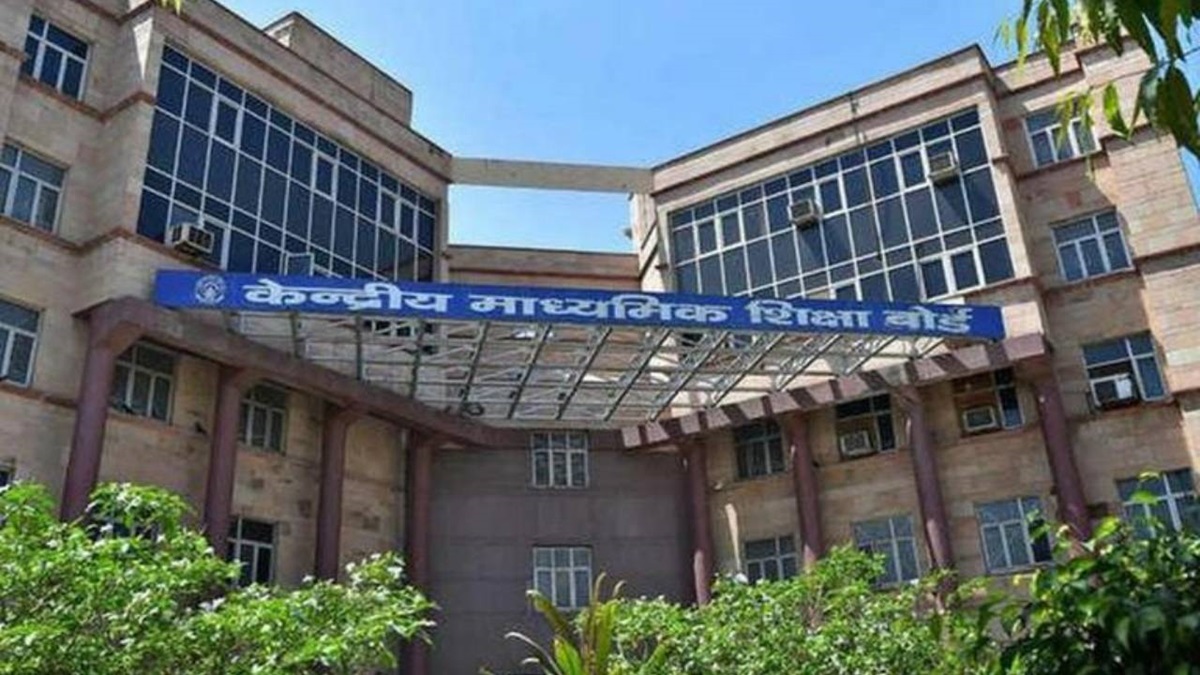CBSE is likely to hold the Class 10 board exam twice a year from 2026. The board has released a draft with the proposed schedule, subject groups, and guidelines. Stakeholders can submit feedback by March 9.
Punjab Education Minister Harjot Singh Bains has raised strong objections to CBSE’s new draft policy for board examinations, alleging that it excludes Punjabi from the subject list. Minister Bains has urged both CBSE and the Union Education Ministry to roll back the decision.
Bains expressed his concerns on social media, stating: “We strongly object to CBSE’s new exam pattern scheme, which attempts to erase Punjabi! Punjabi must be designated as the main language in Punjab and further be included as a regional language in CBSE for the rest of the nation, as it is spoken and read across multiple states. Any attack on Punjabi will not be tolerated!”
The controversy stems from a draft policy released by CBSE, which, according to allegations, does not include Punjabi (subject code 004) among the listed languages, whereas other languages remain part of the curriculum. The draft policy has been made available for public consultation, allowing stakeholders, including schools, teachers, parents, and students, to provide feedback until March 9 before finalization.
CBSE Clarifies: No Change in Subject Offerings
In response to these allegations, CBSE Controller of Examinations, Sanyam Bhardwaj, clarified: “There is no change in the subject offered today, the list is indicative. All subjects which are offered today will continue in the two Board examinations.”
CBSE’s New Exam Pattern from 2026
The Central Board of Secondary Education (CBSE) is set to introduce a biannual board exam system for Class 10 students from the academic year 2026. The board has approved draft norms for conducting Class 10 exams twice a year, with feedback being solicited before the policy’s finalization.
According to the official release, the biannual exams will commence in 2026, with the first session scheduled from February 17 to March 6. The second session will be conducted from May 5 to 20.
Key Highlights of the Proposed Exam Pattern:
Class 10 and Class 12 board exams will begin on the first Tuesday after February 15 each year.
In 2026, approximately 26.60 lakh students are expected to take the Class 10 exams, while around 20 lakh students will appear for Class 12 exams.
Both board exams will cover the full syllabus and existing textbooks.
Subject grouping:
Science, Mathematics, Social Science, Hindi, and English will have fixed exam days as per the current system.
Given below is the exam structure of CBSE class 10 social science 2025. Students can refer to it to plan their preparation:
Section |
No. of questions |
Type of questions |
Marks per question |
Total weightage (marks) |
A |
20 |
MCQs |
1 |
20 |
B |
4 |
Very short answer type questions |
2 |
8 |
C |
5 |
Short answer type questions |
3 |
15 |
D |
4 |
Long answer type questions |
5 |
20 |
E |
3 |
Case based questions |
4 |
12 |
F |
1 |
Map based |
5 |
5 |
Total |
37 |
|
|
80 |
Regional and foreign languages will be grouped together and examined on a single day.
Other subjects will have multiple examination slots, allowing students to take exams on two or three different dates based on their choices.
With the controversy surrounding Punjabi’s alleged exclusion, stakeholders are expected to submit their concerns before the finalization of CBSE’s exam policy.
Read More
Follow Shiksha.com for latest education news in detail on Exam Results, Dates, Admit Cards, & Schedules, Colleges & Universities news related to Admissions & Courses, Board exams, Scholarships, Careers, Education Events, New education policies & Regulations.
To get in touch with Shiksha news team, please write to us at news@shiksha.com

Comments
Latest News
Next Story

You can refer to the pattern listed below for CBSE 10th Science exam 2025:
CBSE Class 10 Science 2025: Topic-wise Weightage
Unit and Topic
Weightage (marks)
Unit 1: Chemical Substances: Nature and Behaviour
25
Unit 2: World of Living
25
Unit 3: Natural Phenomena
12
Unit 4: Effects of Current
13
Unit 5: Natural Resources
5
TOTAL MARKS (THEORY)
80
TOTAL MARKS (INTERNAL ASSESSMENT)
20
GRAND TOTAL
100